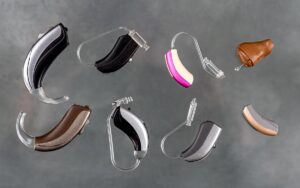Ever wish you could get the inside skinny on what hearing aids are really like? How does a hearing aid feel when you have one on, what is the sound like, and what does it feel like in your ears are all questions you may want to ask someone who already has hearing aids? Here’s a description of what hearing aids are like, but if you truly want to understand, come see us for a demo.
1. Hearing Aids Occasionally Have Feedback
This isn’t the type of feedback that you get when someone tells you how they feel about your results. When a microphone and a speaker pick up each other’s signal, they interfere with each other resulting in a high-pitched whistling sound. It creates a sound loop that even modern speakers like the ones in hearing aids don’t know how to handle.
We’ve all heard this type of feedback just before somebody begins talking into a microphone.
Though this can be unpleasant, when hearing aids are correctly tuned, it’s rare. You may need to re-fit or replace the earmolds if this keeps happening.
Feedback can be removed, in some more advanced hearing aids, by a built-in feedback cancellation system.
2. You Can Follow Conversations in a Loud Restaurant
Eating dinner out with the family can seem like eating dinner by yourself if you have untreated hearing loss. It’s almost impossible to keep up with the conversations. You might wind up sitting there, smiling and nodding most of the night.
But hearing aids today have some pretty sophisticated technology that can drown out background noise. The voices of your family and the wait staff become crystal clear.
3. Sometimes it Gets a Bit Sticky
When something is not right, your body has a way of reacting to it. If you eat something too spicy hot, you produce more saliva to rinse it out. If you get an eyelash in your eye, you produce tears to wash your eye. Your ears have their own way of removing a nuisance.
Earwax production.
So it’s not surprising that people who wear hearing aids often get to deal with wax buildup. It’s only wax, thankfully, so cleaning it isn’t an issue. (We’ll show you how.)
Once you’re done the cleaning you’re quickly back to good hearing.
4. Your Brain Will Also Get The Benefit
This one may surprise you. If somebody starts to develop hearing loss it will gradually impact cognitive function as it progresses.
Fully understanding what people are saying is one of the first things you lose. Then memory, learning new things, and problem-solving become a challenge.
This brain atrophy can be stopped in its tracks by using hearing aids sooner than later. Your brain gets re-trained. They can slow and even reverse mental decline according to many studies. As a matter of fact, one study conducted by AARP revealed that 80% of individuals had increased cognitive function after managing their hearing loss.
5. The Batteries Have to be Replaced
Many people simply hate dealing with those little button batteries. And these batteries seem to pick the worst time to die, like when you’re waiting for a call from your doctor.
But straight forward solutions exist to reduce much of this perceived battery hassle. You can substantially extend battery life by implementing the proper methods. The batteries are small and inexpensive, so it’s easy to carry an extra set in your wallet.
Or, today you can purchase rechargeable hearing aids. When you go to bed, simply dock them on the charger. Put it back on in the morning. You can even get some hearing aids that have solar-powered charging docs so they will be available to you even if you are hiking or camping.
6. There’s a Learning Curve
The technology of modern-day hearing aids is quite advanced. It isn’t as hard as learning to operate a new computer. But adjusting to your new hearing aids will certainly take some time.
It steadily gets better as you continue to wear your hearing aids. Throughout this adjustment time, try to be patient with yourself and your new hearing aids.
Anybody who’s been wearing a pair of hearing aids for 6 months or more will tell you that it’s worth it.
Only actually wearing hearing aids can give you the experiencing of what they’re really like. If you want to figure it out, contact us.
[blogcta]
References
https://www.aarp.org/health/brain-health/info-07-2013/hearing-loss-linked-to-dementia.html





